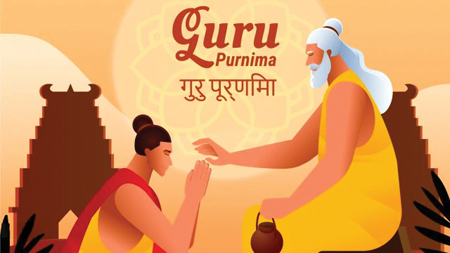Musings: My Two Thanksgivings

The sentiments of appreciation that arise so naturally each year on the fourth Thursday of November remind the author of a similar gush of gratitude he experiences each July.
[Left] The author (second from left) enjoying a Thanksgiving dinner with his tennis buddies.
On the last Thursday of every November, I sit quietly in the morning and contemplate the gifts I have been given: good health, the privilege of traveling and having lived in so many countries, and the joy of meeting a fascinating assortment of people. I recall invitations to Chinese New Year dinners, Diwali feasts, Christmas dinners, and Thanksgiving gettogethers. I am thankful for the friends and family in my proximity, but also for those living their beautiful lives in lands of their choice—as I recall their faces in my mind.
I think of my tennis buddies and of my editors, who, in accepting me and my writing, saved me from the pangs of adjusting to a new country when I moved to the U.S. I give thanks for the harmony, peace, and freedom that prevails in the community and the country I live in. And my gratitude goes out to those who work hard to preserve them.
But this is not the only time in the year when it is customary for me to be naturally in a spirit of gratitude. Thanks to my two sets of cultural traditions, I also get to enjoy Thanksgiving each July. On the full moon day of the month falls Guru Purnima, one of the most auspicious days in the Indian calendar. It is when we pay homage to the guru— the one who guides us in our journey from being human to being divine.
This ultimate journey is no cakewalk. Bill Murray’s movie, The Razor’s Edge, based on a novel by Somerset Maugham, highlights the point made in the ancient text of the Katha Upanishad: one’s efforts to realize God are like walking on a razor’s edge. An aspirant needs a guide, one who has walked the path and knows the terrain. The guide is called the guru. “Gu” in Sanskrit means darkness or ignorance; “Ru” stands for the remover of that darkness. The guru sets aspirants on the spiritual path, observes their practice, and teaches them to navigate and finally transcend the mind.
 Guru Purnima is the day on which the aspirant takes stock of his progress and expresses his gratitude to his preceptor. A guru for me is not only someone who has been my teacher, in both a scholarly and a spiritual sense, but also a person from whom I’ve learned the secret of transcendence.
Guru Purnima is the day on which the aspirant takes stock of his progress and expresses his gratitude to his preceptor. A guru for me is not only someone who has been my teacher, in both a scholarly and a spiritual sense, but also a person from whom I’ve learned the secret of transcendence.
[Right] Guru Purnima: the author’s other “Thanksgiving” comes in July. (Photo: Freepik)
Almost every morning, upon waking up, I sit quietly for minutes—to go deeper into myself. On Guru Purnima, this is followed by remembering everyone from whom I have learned and benefited: my kindergarten teacher, who taught me to count; the college professor, who initiated me into the joys of literature; my associates and friends, all of whom gave me something of themselves. I think of the speakers from various religious traditions that I have been privileged to hear. My mind recalls the faces of strangers, fellow passengers on planes and trains, whose casual remarks made an impact on me. I remember authors whose writing gave an insight or two into life. I express gratitude to my sisters and brother, my wife, my children, and my grandchildren for teaching me that love is infinitely more than an emotion.
Finally, my mind cannot but dwell on the beauty of the world and the power and imagination of the architect who created it. And so, I thank the greatest guru of all, God, who not only gave me the wisdom to understand and express gratitude but also created this lovely universe.
Then I do what everyone does to express happiness: I gather my family, and we have a great meal together, talk and laugh, and wish for the present moment to last forever—just like I do on my Thanksgiving in November.
A two-time nominee for the Pushcart Prize, Murli Melwani is a short story writer and editor of a website dedicated to Indian short stories in English (https://indianshortstoryinenglish.com/).
Enjoyed reading Khabar magazine? Subscribe to Khabar and get a full digital copy of this Indian-American community magazine.
blog comments powered by Disqus











